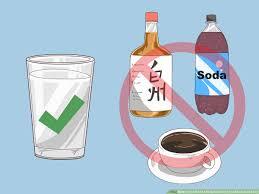Cold weather can be difficult on your heart and lungs. Here are some tips to keep these vital organs healthy as the temperature drops.

In the winter, one must take extra care of one’s heart because the cold weather can cause the heart to beat faster and raise blood pressure.
Winter is eagerly anticipated for a variety of reasons, including good food and pleasant weather. However, the season has its own set of health risks. The cold weather can suppress our immune systems and make us vulnerable to a variety of health problems. Dry skin, colds, and coughs are just the tip of the iceberg, as cold temperatures and sedentary lifestyles can all have a negative impact on our heart and lungs. Sedentary lifestyles and comfort foods, combined with weakened immunity, increase the risk of a sudden heart attack and respiratory issues significantly. It is critical to protect your overall health by shielding yourself from the cold wind and allergens and eating nutritious foods. (See also: Healthy broccoli recipes to improve heart health.)
“Cold weather not only affects the heart but also the lungs. During the winter, the majority of people will experience respiratory issues such as a cold, cough, wheezing, asthma, and bronchitis. Furthermore, winter is known to aggravate heart problems such as heart attacks or chest pain. It is critical that you take care of yourself and stay healthy during the winter.
Winter is not only hard on your skin and joints, but it is also hard on your heart and lungs. Winter is known to bring a slew of health issues that can make life difficult. “Extreme cold can exacerbate heart and lung problems,”
1 .Why does the winter season aggravate lung problems?
Asthma and other respiratory issues are more common in the winter because the lungs and other internal organs have to work harder to keep the body warm.
“Cold weather will also make you feel short of breath by putting pressure on your lungs. For those suffering from Chronic Obstructive Pulmonary Disease (COPD), cold air is known to cause pulmonary spasms, leading to asthma attacks and even chest tightness. Winter’s dry air causes lung irritation and narrowing of the upper airway. During the winter, one will also experience a common cold, cough, sore throat, and bronchitis. During cold weather, blood vessels and arteries constrict to keep the body warm.”
2.How cold weather affects the heart
In the winter, one must take extra care of one’s heart because the cold weather can cause the heart to beat faster and raise blood pressure.

“The sudden drop in temperature has an adverse effect on organs such as the heart and lungs, causing the heart to beat faster, resulting in high blood pressure and, ultimately, a heart attack. To maintain heat, blood vessels constrict, and blood pressure may rise if the heart beats faster. As a result, there may be a negative impact on the heart.”
Winter health tips for your heart and lungs
1.Avoid physically demanding activities.
Do not engage in any strenuous activities that could strain your heart.
2.Mask for the face

If you must visit any crowded areas, wear a face mask. Avoid being around sick people and practise good hand hygiene. Those suffering from asthma or bronchitis should avoid winter triggers such as pollution and smog.
3.Drink plenty of water and avoid junk food.

Drinking cold water should be avoided to protect your lungs. Try to stay away from ice cream, colas, and sodas.
4.Dress appropriately for the weather.
During the winter, try to dress warmly. You must dress in full-sleeved clothing, sweaters, and gloves.
5.Stay inside.
When the weather outside is cold, it is best to stay indoors. Exercise at home and avoid any outdoor physical activity when the weather is extremely cold.
6.A healthy way of life
To improve lung function, practise breathing exercises and eat a well-balanced diet.
7.Organize your home
To avoid asthma flare-ups, keep your home free of dust, mould, and allergens. To breathe freely at home, have good ventilation and use an air purifier or a humidifier.

